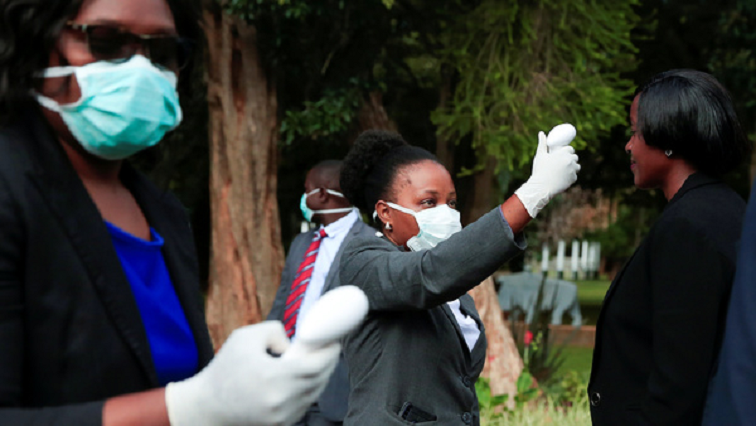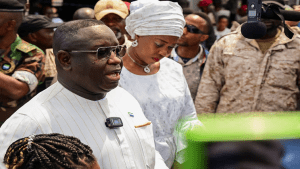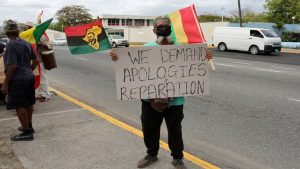Zambia’s coronavirus (COVID-19) cases have risen by 15 to 267.
Fourteen of the cases were recorded in the nation’s capital Lusaka, while one of them is from Chilanga, a township located 20km south of Lusaka.
Seven people have died from the virus in the southern African nation, while 117 others have recovered.
The country’s health ministry says 12 841 tests have been conducted to date.
In Sierra Leone, 16 more people have tested positive for COVID-19, bringing the total of confirmed cases to 307.
Eighteen people have died from the virus in that country with 67 recoveries recorded.
More than 61 000 people have contracted COVID-19 in Africa so far, while 2 239 others have died.
#COVID19 update in Africa (As of 10 May 2020, 6pm East Africa Time)
53 @_AfricanUnion Member States reporting 61,181 cases, 2,239 deaths, and 20,932 recoveries.
More information at https://t.co/teDFU1XFLZ#FactsNotFear #AfricaResponds pic.twitter.com/ZLlLXj0zIZ— Africa CDC (@AfricaCDC) May 10, 2020
WHO estimates 190 000 deaths in Africa
The World Health Organisation (WHO) Africa says 83 000 to 190 000 people could die from COVID-19 on the continent while infections could peak at 29 million to 44 million, if containment measures fail within the first year of the pandemic.
The organisation says this prediction is based on research looking at 47 countries in the WHO African Region with a total population of one billion.
“The new estimates are based on modifying the risk of transmission and disease severity by variables specific to each country in order to adjust for the unique nature of the region,” WHO Africa says in a statement.
In the video below is a discussion on the impact of the COVID-19 outbreak on the continent:
The organisation says that the research model predicts a slower rate of transmission, lower age of people with severe disease and lower mortality rates compared to what is seen in the most affected countries globally.
This trend is attributed to an influence of a younger population that has benefited from the control of communicable diseases such as HIV and tuberculosis to reduce possible vulnerabilities, social and environmental factors that slow the transmission.
However, WHO warns that, the slowed rate of transmission could lead to a prolonged outbreak in Africa that could span over a couple of years. Countries alongside Algeria, Cameroon and South Africa could also be at a high risk if containment measures are not prioritised.
“Containment measures, which include contact tracing, isolation, improved personal hygiene practices and physical distancing aim to slow down the transmission of the virus so its effects happen at a rate manageable by the health system. Physical distancing is not about the confinement of people but rather avoiding unnecessary contacts as people live, work and socialise as a means to interrupt transmission,” the organisation says further in the statement.
Physical distancing is one of the most effective methods to limit the spread of #COVID19. #StayHome when possible & maintain at least 1 meter distance between you & others. pic.twitter.com/go3mVQ7tGu
— WHO African Region (@WHOAFRO) May 10, 2020
Avoid large crowds of people & crowded spaces to limit the spread of #COVID19.
??#StayHome as much as possible. pic.twitter.com/xyWa8qQQH9
— WHO African Region (@WHOAFRO) May 10, 2020
In the video below, SABC News looks at Africa’s fight against COVID-19:
WHO Regional Director for Africa, Dr Matshidiso Moeti, says while the virus might not spread exponentially in Africa, it is likely to smoulder transmission hotspots.
“While COVID-19 likely won’t spread as exponentially in Africa as it has elsewhere in the world, it likely will smoulder in transmission hotspots. COVID-19 could become a fixture in our lives for the next several years unless a proactive approach is taken by many governments in the region. We need to test, trace, isolate and treat.”
The organisation predicts 3.6 million to 5.5 million COVID-19 hospitalisations in Africa; of which 82 000 to 167 000 would be severe cases requiring oxygen and 52 000 to 107 000 would be critical cases requiring breathing support.
This could overwhelm African countries’ health already vulnerable health systems.
A March survey on 47 countries revealed that there’s an average of nine intensive care beds available per one million people. In addition to this, access to healthcare services remains difficult for the general population.
Diseases that can be managed could easily get complicated as a result.
Recommendations
The organisation has recommended that African countries increase their capacity, especially in primary healthcare hospitals.
“The importance of promoting effective containment measures is ever more crucial, as sustained and widespread transmission of the virus could severely overwhelm our health systems. Curbing a large scale outbreak is far costlier than the ongoing preventive measures governments are undertaking to contain the spread of the virus,” Dr Moeti says.
President Cyril Ramaphosa, in his capacity as the AU chairperson, has suggested that the World Bank and IMF grant African countries a debt standstill of two years due to the severity of the projected damage that will be caused by coronavirus.
He hinted on this in his opening remarks during a virtual meeting with other African heads of state recently.






